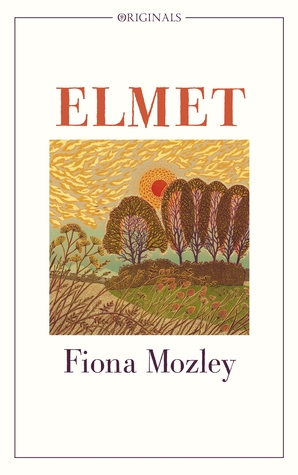
It occurs to me that I don’t think I’ve ever read a book set in Yorkshire before. Is there a dearth of Yorkshire authors? Is it cultural – do they get kicked in the ear if they try to publish a story? Or technological – if they sit down at a keyboard does it send electric shocks up their fingers until they submit? Or is it that there are loads of Yorkie writers and books set there, and I am a human dumpling who simply hasn’t read them? Oh god, it’s the last one, isn’t it?
As a means of rectifying this minor patheticism, I picked up Elmet by Fiona Mozley. It’s set in West Riding of Yorkshire, where the kingdom of Elmet used to be in ye olde times(e). It’s very much in the present day, but the significance of Elmet as a sort of ‘badlands’ tees up the theme of the book well.
Elmet follows a man called John and his children, Cathy and Daniel, through Daniel’s eyes. John is a professional fighter, revered and feared throughout the country for his strength and ability. He's taken his children and built a house in a wood, and teaches them how to survive on the land, self-sufficient and separate from society. He survives off his strength and his morality, and both of these are positives and negatives in the lives of his family.
By taking the family beyond society, we get to explore the relationship between societies and its outsiders. For them, the police, schools etc. are institutions that can’t be trusted. For society, the giant and his family are something to be feared. But one can’t quite exist without the other, and the crossover points are areas of danger and potential mutual benefit.
It’s also interesting to see how the change affects the two siblings as well. Without the gender constraints that social interaction would place on them, John’s children are free to develop in their own way, more alike each other than any boys and girls in the town. They both develop interests in activities that are considered masculine and feminine. Daniel is more interested in reading and writing, whereas Cathy increasingly wants to define herself by her strength and fearlessness, like her father. It isn’t true to say their gender roles reverse – more that they are irrelevant. But then when they come back into contact with people within the town, this secures their status as oddballs even further, and is deeply jarring for them. This is fiction, of course, but their development feels very plausible.
Like a lazy match, this read is a slow-burn. It relies heavily on creeping tension, and a developing sense of claustrophobia. But all this lends to a superb atmosphere that’s brilliantly-tended and which grow and strains across the book. It’s unapologetically bleak from beginning to end, so don’t read it if you’re already thinking about edging towards a sixth-storey window – but as long as you can hack that, this is a great read.
--
This is my thirty-fifth book review of 100 to raise money for Refuge, the domestic abuse charity. If you liked this review, or just want to help out, please donate on the link below!
Comments
Post a Comment